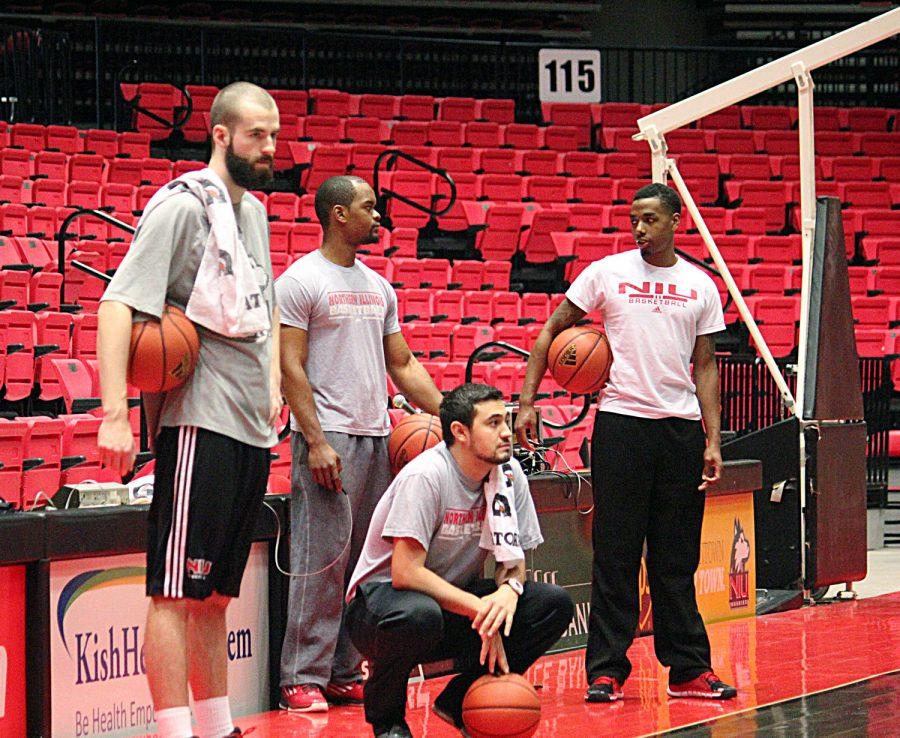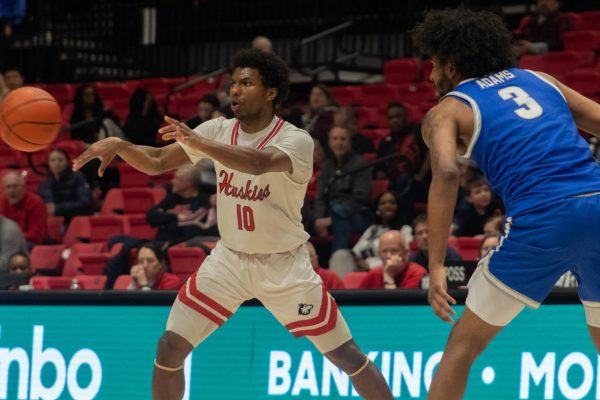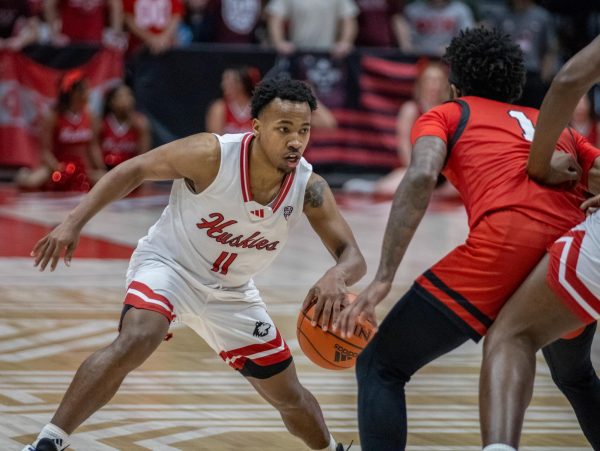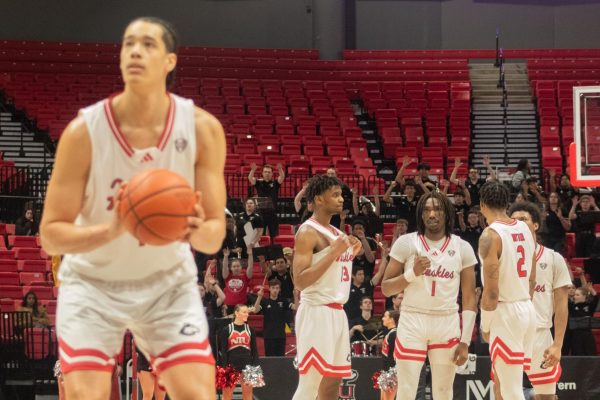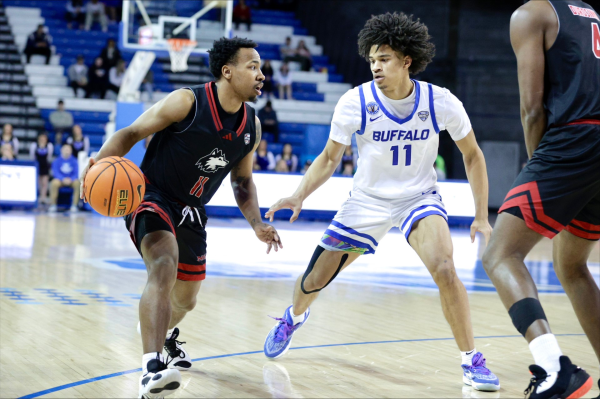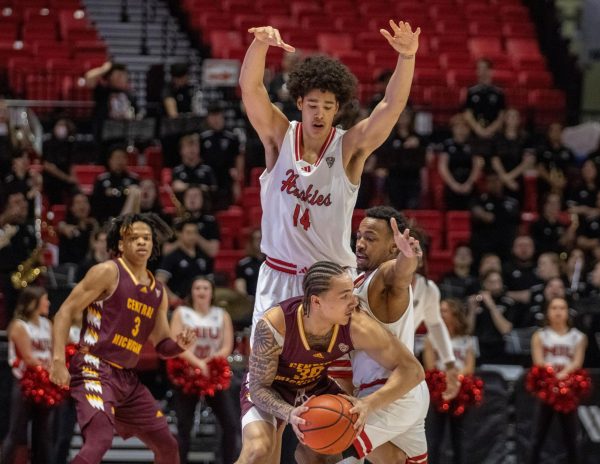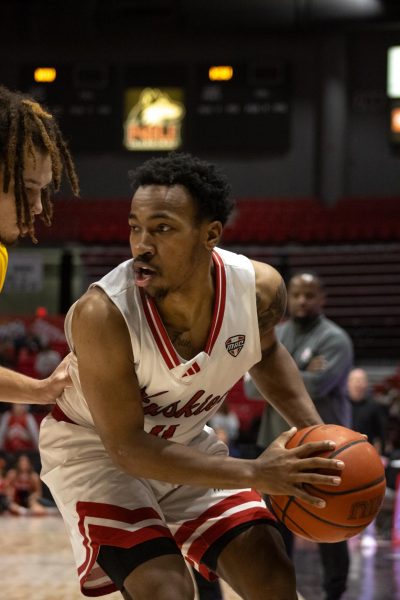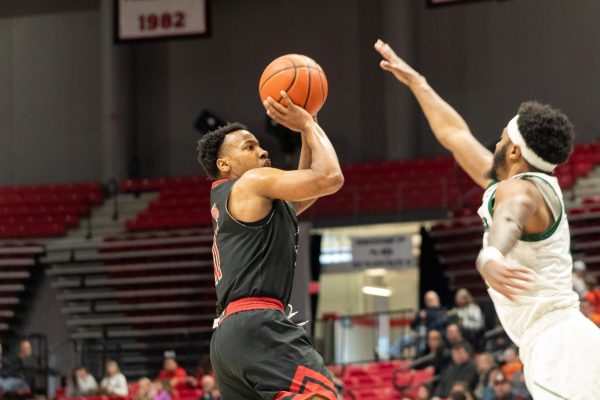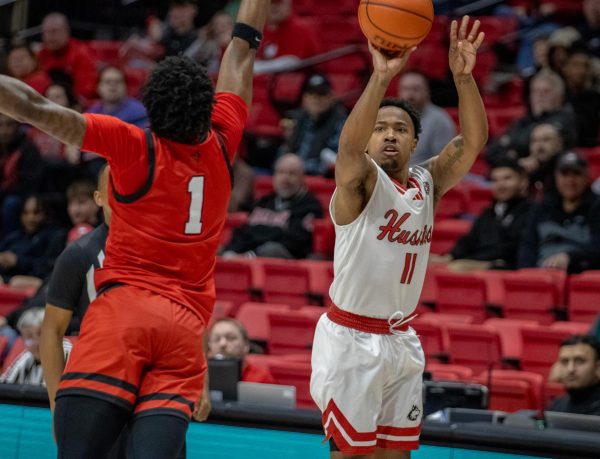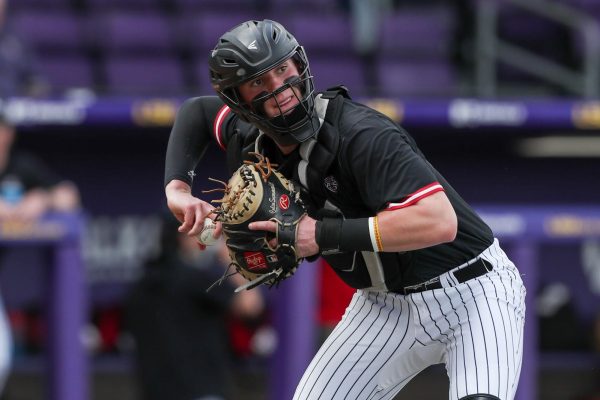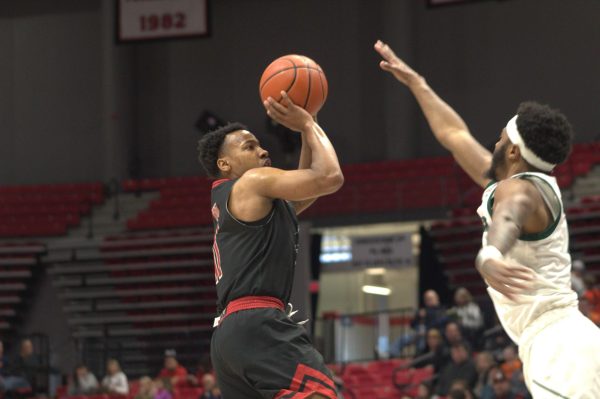NIU men’s basketball: Managers exhibit ‘passion’ for game
January 29, 2015
The student-managers are the most anonymous members of men’s basketball, but the lack of notice doesn’t negate their importance.
The six student-managers are the support staff for the Huskies’ players and coaches. Whatever the team needs done, they know they can turn to the student-managers to do it.
“It’s a lot of extra work, but it pays off in the end,” said junior student-manager Drew Zickert. “We really like it. We’re here to help the team out and be the best we can be.”
There isn’t a set list of job responsibilities for the student-managers. While most days they know what they have to do, there’s no accounting for what can come up, so they have to stay on their toes.
“The student managers are an extension of the staff,” said head coach Mark Montgomery. “I call them student-coaches. They’re valuable. They’re just as valuable as a player right now because you need your extended staff to run a Division I program. … They do it all. They do everything.”
Exactly what the managers do varies. Some days they spend time shagging rebounds or running drills with the team in practice; some days they function as a scout team of the upcoming opponent. They’re whatever they’re needed to be in practice, but game days are a different story.
***
For a 7 p.m. home game, managers arrive at the Convocation Center around noon to help run the shoot-arounds and drills. After the pre-game meal at 3 p.m. the managers are in game mode.
In the hours before tip-off the managers set up just about everything, from getting the uniforms ready to preparing the bench.
Once the game is underway they run through a host of jobs. Someone films the game while the rest of the managers run the bench.
While timeouts are boring to spectators, it’s the most action-packed time for the student-managers. In each timeout they race onto the court, bringing out chairs and giving players water, all with the precision of a NASCAR pit crew. With the time crunch the team is already under during a timeout, the managers must be fast and prepared.
Post-game, the managers break down the game-tape, which can take one to three hours. While it makes for a long day, it’s worth it for the managers.
“We’re pretty much first in, last out all the time,” said junior student-manager Kevin Ramsey. “It’s pretty cool, actually. I like it. I get to see everything from the beginning to the end.”
It’s a similar procedure for road games, but there are fewer bodies to share the workload. Usually, only two or three managers travel with the team.
The night before a road trip, the managers pack everything the team needs, from the uniforms down to the Gatorade. When the team arrives at the hotel, it’s up to managers to make sure everyone is where they’re supposed to be.
***
Sharing the workload is one of the most important things for the student-managers if they want to maintain the student part of their title. They spread their job responsibilities across the group, making sure someone is available when classes interfere with practices or games.
Finding that balance between work and school can be a challenge, especially when the managers end up working 30 hours per week during the season.
“I’ve just tried to learn a lot about time management,” Zickert said. “It’s very important with getting my work done early and not waiting until the last minute like most people. It’s just staying on top of that while being at practice as much as I can. It’s been a struggle at times, but schoolwork does come first at the end. I’ve been doing well in that.”
The most important quality for the student-managers to have is they have to actually like basketball, Ramsey and Zickert said.
“You have to have a passion and understanding for basketball to do this manager thing,” Ramsey said. “You couldn’t just come in and not know basketball because there’s going to be times when coaches yell something out to you and you have to understand what he wants.”
That knowledge and understanding of basketball is what keeps the student-managers in the program after every long week.
“Basketball’s my favorite sport, and it always has been,” Zickert said. “I just love the game. I love being around it. … I love helping out. It’s basketball. It couldn’t be any better.”



